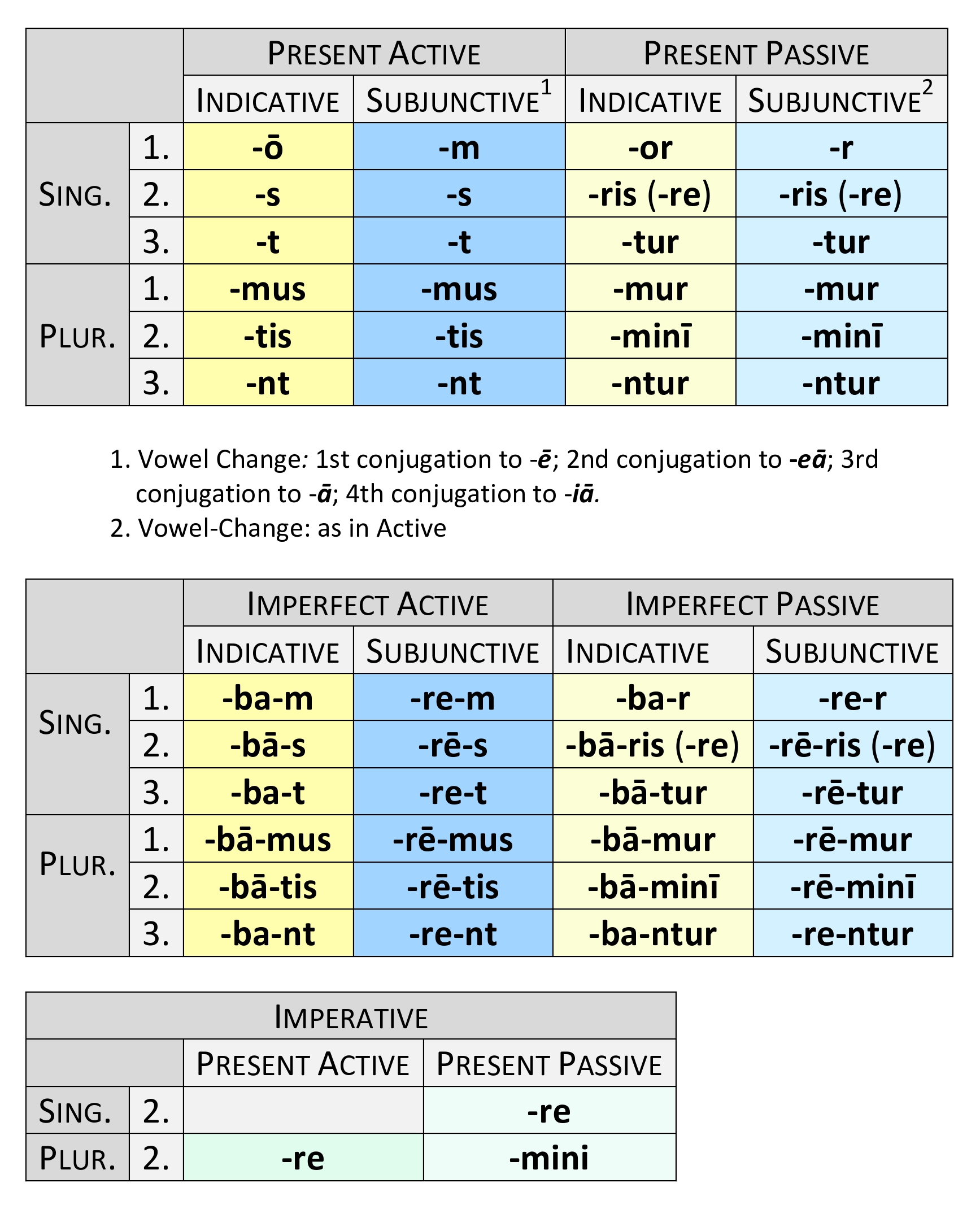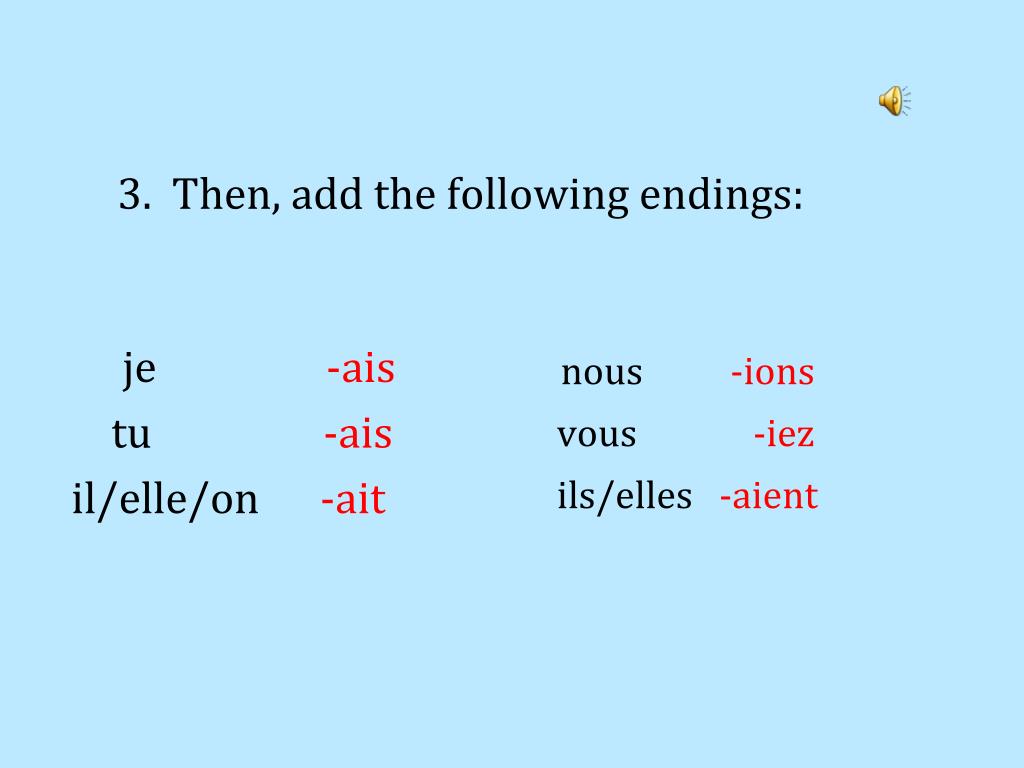
However, some people (especially with a Southern Accent) would also pronounce “allais” as ending in (phonetic) as well. In France itself, basically everyone would pronounce “allé” / “allez” / “aller” the same way. I have no idea about the pronunciation of Québécois French. “allais”, just like “palais” or “Monet”, ends in (phonetic) “allé”, just like “allez” and “aller” (and “fiancé”) ends in (phonetic) On ne dit pas et on écrit rarement : ‘… qu’il eût fallu que tu vinsses’ mais ‘….qu’il aurait fallu que tu viennes’. L’imparfait et le plus-que-parfait sont réservés à l’écrit et encore… Ces deux derniers temps sont jugés très littéraires. Le subjonctif en français ne s’utilise à l’oral qu’au présent (que je sois, que je vienne) et au passé (que j’aie été, que je sois venu). On le trouve également après les verbes d’obligation : il faut, il est nécessaire que.

On le trouve après de nombreuses expressions : afin que, bien que, quoique, pour que, avant que, jusqu’à ce que, pourvu que…Įx : Bien qu’il ne soit pas d’accord, il n’a pas discuté la décision. À exprimer le désir, la volonté, l’exigence (vouloir, exiger) ou un sentiment (souhaiter, avoir envie…) dans une subordonnée (qui dépend donc d’une principale).Įx : Je veux/Je souhaite/J’exige/J’ai envie que tout le monde soit heureux. Ex : Qu’il vienne immédiatement ! (ordre) – Que tout le monde soit heureux ! (souhait) À exprimer l’ordre ou le souhait dans une proposition indépendante. (For the extra-extra-mile, as a simple French curiosity, there’s one last use of l’imparfait: l’imparfait “hypocoristique” = using l’imparfait in place of the present tense, to sound like you’re talking like a child, for endearment.)Īlors, c’est un peu complexe mais j’espère que cette réponse t’aidera un peu : = She was in the middle of walking out of the bakery. Elle était en train de sortir de la boulangerie. = I am currently in the middle of eating. For instance: Je suis en train de manger.
#Imparfait endings passer plus
*** Le truc en plus *** For long actions (= progressive tenses), you can also use the everyday expression “ être en train de” = to be in the middle of.

→ Here, “ Elle allait” is a long action compared to “ elle a vu.” “ Seeing Michel” cut short her action of “ going to the bakery.” That’s why we use l’imparfait for “ elle allait,” and le passé composé for “ elle a vu Michel.” Le passé composé is the other main French tense for the past, and it’s used for short actions (that we take as a whole, rather than as a period of time.) = She was going to the bakery when she saw Michel. = I was already in Grenoble last year.Īnd for long actions in the past: Elle allait à la boulangerie, quand elle a vu Michel.

Like: J’étais déjà à Grenoble l’année dernière. More generally, it’s used for situations in the past (that lasted some time). = I used to drive to the office every morning. J’allais au bureau en voiture tous les matins. Well, that’s the second meaning of l’imparfait : a habit, in the past. Il y a (there is) → il y avait (there was / there used to be) Il faut (Someone needs to…) → Il fallait (Someone needed to…) Il pleut (it’s raining) → il pleuvait (it was raining) Il neige (it’s snowing) → il neigeait (it was snowing)ĭid you notice? In the examples above, I sometimes translated l’imparfait with “ used to. Some impersonal verbs don’t always have a present form with “ nous” yet we still use them in l’imparfait. Most notably: Commencer(= to start) → Nous commençons (= we start, present) → In l’imparfait: Je commençais Nous commencions Tu commençais Vous commenciez Elle commençait Elles commençaient So it always sounds like “ss” (as in “ ça” or “ ce”) and never like “ k” (as in “ ca” or “ co”). We add la cédille ( ç) for all subjects with -ai. Most notably: Manger (= to eat) → Nous mangeons (= we eat) → In l’imparfait: Je mangeais Nous mangions Tu mangeais Vous mangiez Elle mangeait Elles mangeaient Verbs in -ger add an -e before the endings of l’imparfait, with all subjects except “ nous” and “ vous.” Basically, we don’t want to hear the hard “ g” sound that would appear with “ g + ais.” So we turn it into “- geais” Fortunately, there aren’t many second-group verbs in everyday French ( grandir, nourrir = to feed…) – most verbs in -irare 3rd-group (like courir = to run, dormir = to sleep…) Unfortunately, there’s no real shortcut you have to learn the group of each verb in -ir you see.ī) Tweaks in first-group verbs, for pronunciation reasons


 0 kommentar(er)
0 kommentar(er)
